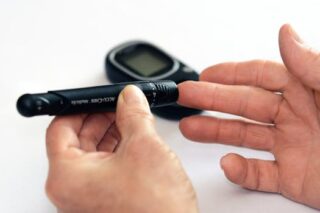
More Heart Disease, Stroke and Diabetes Articles
Can Drinking Coffee Increase Your Blood Pressure?

For many of us, starting the day with a cup of coffee is a cherished ritual. But if you’ve found yourself asking, “does coffee cause high blood pressure?” you’re not alone. This question is common among coffee lovers who are also health-conscious. Let’s delve into what science says about coffee and its potential effects on blood pressure, how caffeine might influence your cardiovascular health, and what steps you can take if you’re concerned.
Does Coffee Cause High Blood Pressure?
Coffee, containing caffeine, is one of the most popular beverages consumed worldwide. Caffeine is a natural stimulant known for its ability to increase alertness and boost energy. But how does it relate to blood pressure? Studies have shown that caffeine can cause a short-term increase in blood pressure. However, the long-term effects are less clear. Some research suggests that people who regularly drink coffee develop a tolerance to caffeine, reducing its impact on blood pressure over time.
The immediate rise in blood pressure is attributed to caffeine’s stimulating effect on the nervous system, leading to an increase in heart rate. Although all individuals may experience a temporary rise in blood pressure, this effect is typically mild and tends to diminish as the body adapts to regular caffeine consumption.
It’s essential to note that response to caffeine can vary based on individual factors like genetics, overall health, and daily intake. If you have concerns about caffeine affecting your blood pressure, consider moderating your intake and observing any changes. For a comprehensive exploration on related health tips, discover vitamins that are beneficial for brain health and memory.
Scientific Research on Coffee and Blood Pressure
Several studies have explored the relationship between coffee consumption and blood pressure. A study published in the American Journal of Hypertension found that participants experienced short-term increases in blood pressure after consuming caffeine, but no significant long-term effects were observed. Another study indicated that habitual coffee drinkers might not experience significant increases in blood pressure compared to non-drinkers.
Moreover, some research suggests that moderate coffee consumption could be part of a healthy lifestyle, particularly in populations that consume it regularly. Researchers continue to study coffee’s complex interactions with the body, including its antioxidant properties and how it may support heart health.
Potential Risks and Recommendations
While coffee might not cause high blood pressure for everyone, those who are sensitive to caffeine or have existing hypertension should be cautious. It’s recommended to monitor your blood pressure if you’re concerned about caffeine’s effects. Limiting intake to 2-3 cups a day could mitigate potential risks. Discussing dietary habits with a healthcare provider can also provide personalized recommendations.
Another consideration is the total dietary and lifestyle approach. Factors such as diet, exercise, stress management, and family history all play significant roles in cardiovascular health. Maintaining a balanced lifestyle with attention to other risk factors is crucial in managing blood pressure.
For external resources on health-related topics, you may also visit this informative page on Wikipedia.
Takeaways
- Caffeine can cause a temporary rise in blood pressure.
- Regular coffee drinkers may develop tolerance, reducing its impact.
- Moderation is key for those with existing cardiovascular concerns.
- Adopt a holistic approach to manage blood pressure effectively.
- Consult healthcare providers for tailored advice.
FAQs
Can I drink coffee if I have high blood pressure?
If you have high blood pressure, it’s wise to consume coffee in moderation. Talk to your doctor to determine what amount is safe for your specific health condition.
How soon after drinking coffee might my blood pressure increase?
Blood pressure may rise within 30 minutes of consuming caffeine, peaking around 1-2 hours after intake. This increase is usually more noticeable in people who are not regular coffee consumers.
Are there alternatives to coffee for a morning energy boost?
Yes, if you wish to avoid caffeine, consider options like herbal teas, smoothies, or exercise which can provide a natural energy boost without the stimulating effects of caffeine.
Is decaf coffee a safe option for blood pressure?
Decaf coffee contains minimal caffeine and typically does not affect blood pressure as significantly as regular coffee, making it a better option for individuals concerned about hypertension.
What other factors can influence blood pressure?
Blood pressure is influenced by several factors including diet, physical activity, stress levels, weight, and genetic predisposition. Managing these can assist in maintaining healthy blood pressure levels.
In exploring whether coffee does indeed cause high blood pressure, the evidence suggests that while caffeine can temporarily increase blood pressure, it may not have significant long-term effects for most people. As with many health-related issues, moderation and balance are vital parts of the equation.
Other Articles You May Find of Interest...
- Deion Sanders Health Update 2026: Bladder Cancer, Diabetes, Blood Clots and Current Condition
- Understanding Cardiology: Your Complete Guide to Heart Health and Cardiovascular Care
- Type 2 Diabetes Isn’t a Life Sentence: Why Reversal Is Possible
- The Two-Way Relationship Between Gum Disease and Diabetes
- Decoding the Significance of an Abnormal EKG
- Essential Guide to Glipizide Dosage for Effective Diabetes Management
- Essential Guide to Insulins: Choosing the Right Type for Your Needs














